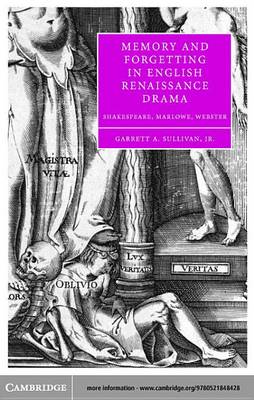Cambridge Studies in Renaissance Literature and Culture
1 total work
Memory and Forgetting in English Renaissance Drama
by Garrett A. Sullivan, Jr
Published 1 January 2005
Engaging debates over the nature of subjectivity in early modern England, this fascinating and original study examines sixteenth- and seventeenth-century conceptions of memory and forgetting, and their importance to the drama and culture of the time. Garrett A. Sullivan, Jr discusses memory and forgetting as categories in terms of which a variety of behaviours - from seeking salvation to pursuing vengeance to succumbing to desire - are conceptualized. Drawing upon a range of literary and non-literary discourses, represented by treatises on the passions, sermons, anti-theatrical tracts, epic poems and more, Shakespeare, Marlowe and Webster stage 'self-recollection' and, more commonly, 'self-forgetting', the latter providing a powerful model for dramatic subjectivity. Focusing on works such as Macbeth, Hamlet, Dr Faustus and The Duchess of Malfi, Sullivan reveals memory and forgetting to be dynamic cultural forces central to early modern understandings of embodiment, selfhood and social practice.
